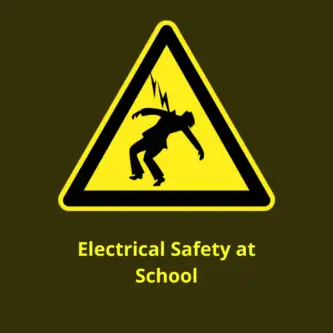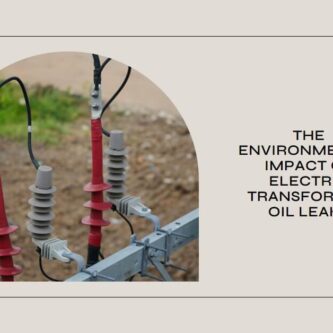Electric motors are crucial components in a variety of industrial and household appliances. They provide the force needed to turn machines like pumps, fans, and compressors.
However, electric motors can fail due to several reasons, one of which is exposure to water. In this article, we explore whether water can cause an electric motor to burn out.
Understanding Electric Motors
Before delving into the effects of water on electric motors, it’s essential to understand how they work. Electric motors convert electrical energy into mechanical energy.
They do this by utilizing the principle of magnetism. The motor contains a set of stationary windings that produce a magnetic field when an electric current flows through them. The electrical energy inside the motor should never come into direct contact with water. Let’s discover why!
Can Water Damage an Electric Motor?
Water and electricity are a dangerous combination. When water comes into contact with electrical equipment, it can cause short circuits, electrical shock, and even fires.
However, the effects of water on electric motors depend on several factors, including the amount of water, the type of motor, and the duration of exposure.
For instance, a small amount of water may not cause significant damage to an electric motor. In contrast, a substantial amount of water can cause severe damage, leading to burnout.
Moreover, the type of motor matters, with some being more vulnerable to water damage than others. For example, induction motors are more resistant to water than permanent magnet motors.
Totally enclosed fan-cooled motors (TEFC) are sealed and more protected than open drip-proof motors (ODP). Want to learn more about TEFC and ODP motors? make sure to check out my article on my electrical4uonline site ODP vs TEFC motor.
How Does Water Damage an Electric Motor?
Water can damage an electric motor in several ways. Firstly, water can cause a short circuit between the windings, which can lead to excessive current flow and overheating.
This overheating can damage the insulation on the windings, leading to a loss of continuity and eventual burnout.
Secondly, water can cause corrosion on the motor’s internal components, including the bearings, shafts, and laminations.
This corrosion can cause the motor to seize up or develop excessive friction, leading to overheating and eventual burnout.
Finally, water can cause electrical insulation breakdown, leading to arcing between the windings. This arcing can cause severe damage to the windings and other components, leading to burnout.
For in-depth information check out my article on my other site Moisture and Electric Motors: The Corrosive Effects of High Humidity.
Preventing Water Damage to Electric Motors
Preventing water damage to electric motors is crucial to ensuring their longevity and preventing accidents. Here are some tips to prevent water damage to electric motors:
- Keep water sources away from electric motors, and do not use them in wet environments.
- Regularly inspect motors for signs of water damage, such as corrosion, rust, or discoloration.
- In case of water exposure, disconnect the power source and have the motor inspected by a qualified technician.
Ensure that electric motors are installed in a dry location
Installing electric motors in dry and protected locations is an essential step in preventing water from causing damage to the motor.
When an electric motor is exposed to water or moisture, it can lead to a short circuit, causing the motor to burn out or even pose a safety hazard to operators.
To ensure that electric motors are installed in dry and protected locations, consider the following:
- Evaluate the environment: Evaluate the environment where the motor will be installed. Consider whether there is a risk of water exposure due to factors such as humidity, condensation, or proximity to water sources.
- Choose a suitable location: Select a location for the motor that is dry and protected from water exposure. This may include an enclosed area or a sheltered location that is away from water sources or areas prone to moisture.
- Use protective measures: Use protective measures to prevent water from reaching the motor, such as using a waterproof enclosure or covering the motor with a waterproof cover.
- Follow manufacturer guidelines: Follow the manufacturer’s guidelines for installation and maintenance, which may include recommendations for protecting the motor from water exposure.
Keep water sources away from electric motors, and do not use them in wet environments.
Regularly inspect motors for signs of water damage, such as corrosion, rust, or discoloration.
In case of water exposure, disconnect the power source and have the motor inspected by a qualified technician.
Motor IP rating
An electric motor’s IP rating indicates its level of protection against foreign objects, including water. When an electric motor is exposed to water or moisture, it can lead to a short circuit, causing the motor to burn out.
By selecting an electric motor with an appropriate IP rating, you can prevent water from damaging the motor and ensure safe and reliable operation.
For example, if your application requires the motor to operate in a wet environment, you should choose an electric motor with a high IP rating, such as IP65 or IP67, which can provide protection against water ingress.
It’s important to note that selecting an electric motor with a higher IP rating may come with a higher cost. Therefore, it’s crucial to evaluate the application’s environment and choose an electric motor with the appropriate IP rating that meets the application’s requirements and industry standards.
Read my comprehensive article IP Reating Impact Electrical Panel Safety
Conclusion
Water can cause an electric motor to burn out, but the severity of the damage depends on several factors.
It’s crucial to take preventive measures to protect electric motors from water damage to ensure their longevity and prevent accidents.
you work With Electricity! Don’t leave empty-handed!
Looking to stay ahead of the game in the world of electrical engineering? Subscribe to my YouTube channel and gain access to exclusive content you won’t find anywhere else!
The staff I recommend (Amazon Affiliate Links to products I believe are high quality):
- Economy 120 Volt/60Hz AC Power Source – Step-Down Voltage & Frequency Converters 1800W
- UNI-T Digital Multimeter Tester UT139C
- 50-Amp Extension Cord for RV “100ft”
- Voltage Stabilizer 110/220v
- Hair Dryer “best selling“
- TOSHIBA EM131A5C-BS Countertop Microwave Ovens
Disclaimer: This contains affiliate links to Amazon products. I may earn a commission for purchases made through these links.


